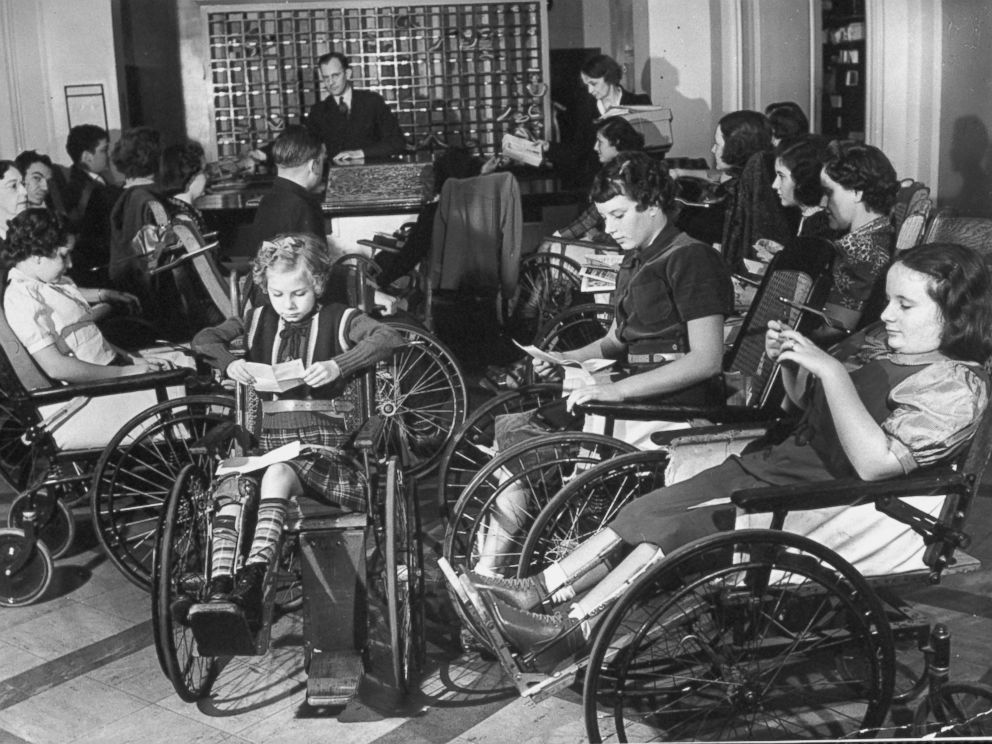
The Golden Age
A Novel
Joan London
(Europa Editions)

Frank Gold's parents fled Hungary in 1940, ending up in Perth, Australia. Within years, Frank comes down with poliomyelitis and is sent to a nearby children's hospital called "The Golden Age." It was once a large and noisy pub. Now it is a large and noisy rehabilitation center for youngsters with polio. And, it is, ironically, during the very years that the cure for polio is being developed by Jonas Salk.It is in the Golden Age that Frank, now thirteen, meets Elsa, the most beautiful girl he has ever met. Elsa doesn't seem all that interested in Frank, but slowly, she finds a great calm in being with him. "This funny boy - - - sharp, watchful, personal, not like a boy really, or any boy she had ever known. Right from the start Frank had acted as if they were members of a secret club. A two-member club to which she'd just been elected."
So they blaze their way through a 200 page courtship in The Golden Age. Each very independent, as we polios tend to be, and also very driven (as we also tend to be). They get used to each other, and find that, sooner or later, they need each other. "He said that it was 'love.' The word did not scare or embarrass him. Every day he had new thoughts about it. It was like a promise made to all human beings . . . " And
Being close made them stronger. They sat talking on the verandah or the back lawn. Their faces had color . . . During the night they missed each other. Each morning was a reunion.
They finally figured out how to get out of that dilemma.
One night a nurse comes into the ward, finds Frank in her bed, lying atop her. What happened then? Well, this is small-town Australia, 1953. What might have been laughed off later is turned into a scandal of the first water: both Frank and Elsa are shipped home.
Months later, they meet once again at her house. Frank with his mother and father, Elsa with hers. Elsa, "a tall, very slim girl, with a limp and a brace, and the face of an angel."
She feels at home here, Frank thought. His stomach clenched suddenly at their distance . . . Ida [Frank's mother] was drawn to her, the beautiful thing in the room. Elsa had a way of floating away from questions, Meyer [Frank's father] thought. Her blonde hair and pale face seemed to melt into the light. An angelic grasp of appearance and disappearance.
The two go out to the garden. The reader knows that their love affair, which took almost 200 pages come to fruition, will now be rekindled. But "even in Elsa's arms, her face against his, Frank's body started to shake and sweat. He knew he couldn't stay here. It flashed through his mind that whatever this force was, it would never release him, it would take all of him."
And with that, she disappears, and their love does too. He moves to New York City, teaches, becomes a published poet. Elsa stayed back in Australia, studies to be a doctor in Perth. Her son Jack comes to meet Frank in New York. Frank, alone in his apartment, thinks, briefly, that all the poems that he has written over the years are "messages to her."
§ § § Ay, mama mia. We got cheated. Here we've struggled over this madness of pubescent youth, with these two odd ducks, the two of them falling in mad love with each other, never to separate . . . and here they are, yanked apart just because they were found noodling together atop her bed at the Golden Age (sic!).
The author allows them a few dinky minutes in the family garden, and then ships him off to a lonely poet's life (oh the agony of poetry) in bleeding Manhattan, and Elsa gets sent over to some drab medical school in dingy Adelaide, gets married off to some slob that we don't even get to meet, so, to make amends, the author relents, sends Elsa's son Jack (he edits a literary magazine named . . . spare me! . . . Praise) off to the big city fifty years later to find out that Frank "too walked without a stick, raced along sidewalks, up and down flights of steps. Taught all day at Cooper Union, partied all night. Rejected any offer of assistance."
"What happened between you and my mother?" asks innocent Jack. Well let me tell you, we think, hoping that Frank will pick up a leaf or two from The Golden Age, tell in great detail of the golden years in rehab, sparing no detail of the stuff that went on between the two of them, plunged into that mystery we call love, at the very least let Frank recall how she was the light of his life . . .
. . . but no, all he says is that she went to Adelaide, he off to Eastern Goldfields, and that "Elsa met your father in Adelaide and got married. She wrote to tell me and soon after I left for New York."
And Frank, we find, lived out his years apparently alone, with a brief interval as a caretaker dad to a little girl with TB. That's it for the golden age of blooming golden love.
Oh yes, a final word for Jack:
Polio is like love, Frank says, a little abashed because he has pronounced this before, often, and in at least two poems. Years later, when you think you have recovered, it comes back.
So much for the truth of post-polio syndrome. And, too: so much for what we used to call, back when I was a kid, "lung yov."
--- L. W. Milam